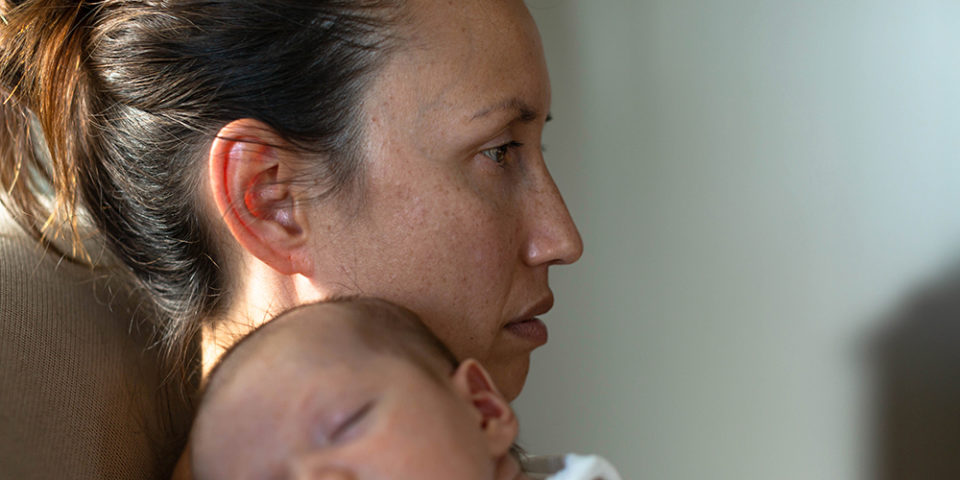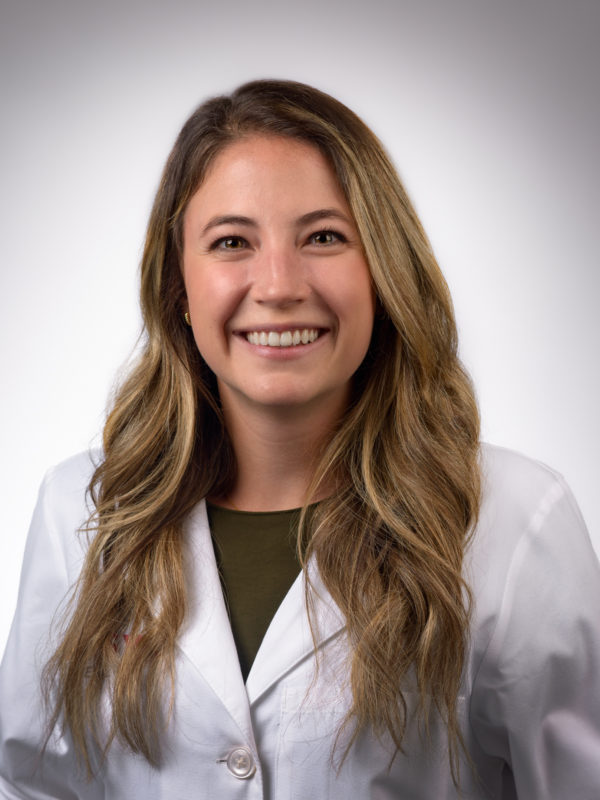What are the differences between postpartum depression and postpartum anxiety?
For new moms, it can feel like after bringing a new life into the world, everything should feel wonderful. Well … not exactly. About 1 in 7 women are affected by postpartum depression or postpartum anxiety, with days they expect to be full of joy instead making them anxious, worried, upset, or prone to concerning intrusive thoughts. OB/GYN physician Anne Marie Gerstner, MD, explained the differences between postpartum depression and postpartum anxiety, signs to watch out for and how to know if you should reach out for help.
How does new motherhood affect mental health?
“Having a baby is an exciting, amazing experience,” said Dr. Gerstner, “but it’s also equally terrifying. You are now in charge of an entire human being who cannot care for themselves at all, you’re not sleeping enough, the cost of diapers and other necessities may feel never ending … it makes perfect sense for those ‘serene’ early days to be equally filled with stress.”
Between sleep deprivation (it’s not uncommon for new parents to get only 3–4 hours of sleep per night!), the constant crying and feeling like you can’t safely step away even for five minutes just to take a deep breath, feelings of anxiety and depression aren’t just possible – they’re common.
Many new moms feel too embarrassed to admit to these negative feelings or believe they’re the only ones who feel this way, but Dr. Gerstner pointed out that what most people allow you to see of their lives isn’t necessarily an accurate picture.
“Everyone posting these social media images of perfect postpartum cuddles and quiet naptimes can make new parents feel isolated and guilty if their experience isn’t the same,” said Dr. Gerstner. “Despite what people like to portray on the outside, experiences of postpartum anxiety and postpartum depression are common, and postpartum psychosis is not as rare as many might think.”
What are the differences between postpartum depression and postpartum anxiety?
“Postpartum depression, often referred to as PPD, and postpartum anxiety, or PPA, both fall under the umbrella of what we call perinatal mood disorders, and can look similar from the outside,” said Dr. Gerstner. “However, they do have some significant differences.”
Anxiety often includes intrusive thoughts – unwanted thoughts that pop into someone’s head and often are difficult to stop, including strong recurring thoughts about something bad happening to the point of it affecting their daily life. Consider the example of a new mother who finds herself returning to her baby’s crib again and again throughout the night, driven to ensure their newborn is still breathing, despite the sleeping environment being as safe as possible and there being no sign of problems.
Depression tends to include slightly different feelings like sadness, loss of interest or even guilt. You can see more of the signs of postpartum depression to watch out for here on our blog.
Many women assume their anxiety or depression is ‘normal,’ but there comes a point when the normal ‘baby blues’ that come with hormonal and lifestyle changes after birth become serious and call for medical help. This is especially true for women who are experiencing early symptoms of an especially severe postpartum mood disorder known as postpartum psychosis, or PPP.
What is postpartum psychosis?
“Typically, symptoms of postpartum psychosis begin within about two weeks of delivery,” said Dr. Gerstner. “The psychosis can be a short, isolated event, or it may persist for longer periods of time.”
Postpartum psychosis involves a loss of your sense of reality and can involve hallucinations, such as hearing voices that aren’t there or seeing things, delusions or generally disorganized thoughts and serious confusion.
While most women affected by postpartum psychosis will have a history of mood disorders like bipolar disorder or schizophrenia, any new mother can potentially develop it. Postpartum psychosis is considered a medical emergency and can result in serious injury or harm to the mother, baby or others.
Anyone experiencing symptoms of postpartum psychosis should seek treatment at the hospital right away.
Is there anything new parents can do to help with postpartum depression or anxiety?
“First off, lack of sleep increases many symptoms of depression and anxiety,” said Dr. Gerstner. “One of my first recommendations is to have the entire household work to make sure new babies and new moms get as much sleep as possible. Not only will it help with those feelings of fatigue, but it will also help your body to heal from giving birth more comfortably!”
Other actions you can take to help with PPD and PPA include:
- Don’t deny the reality of your feelings. Trying to force happiness when you’re not feeling it is a recipe for feeling even worse. Those new baby days are incredibly difficult, and it’s more than okay to ask for help.
- Don’t give up your hobbies and interests. You are not ‘just’ a mom – you are a fully three-dimensional human being who has given birth! Keeping up with the hobbies and interests you enjoy is great for your mental health.
- Stay active however you can. Mild physical activity helps to improve mental health and encourages your body’s healing. Once you’re up and moving, try to walk for 10 minutes at a time at first. This is a great way to make time spent enjoying the outdoors part of your daily routine.
- Make a point to see loved ones face to face. It’s easy to feel so buried in those new baby responsibilities that you miss out on time with friends and loved ones. Be sure to prioritize time to speak with your friends, schedule hang-out time or even a simple hour of coffee and conversation in your own living room.
Will postpartum depression or postpartum anxiety go away on its own?
“There’s no definite answer to this, as every single new mother is different,” said Dr. Gerstner. “Sometimes these postpartum mood disorders heal on their own, but sometimes they won’t.”
Most of the time, the increase in depression and anxiety is temporary, a result of changing hormones, your healing body, lack of sleep and a new routine to get used to. However, even temporary postpartum depression still benefits from speaking to your doctor about the possibility of therapy or medication to treat it.
“It’s an excellent idea, too, to get established with a regular doctor outside of your OB/GYN, if you don’t have a primary care physician already,” said Dr. Gerstner. “If these feelings don’t go away after that initial postpartum recovery and you need more treatment, your doctor can help you decide what kind of treatment is right for you.”
Choose a caring, trusted OB/GYN
Find a provider who’s right for you by viewing their online profiles, star ratings and reviews.
Find an OB/GYN

